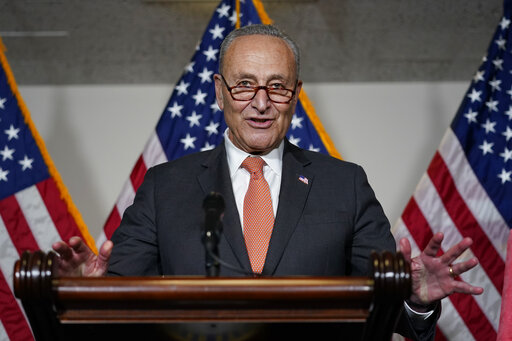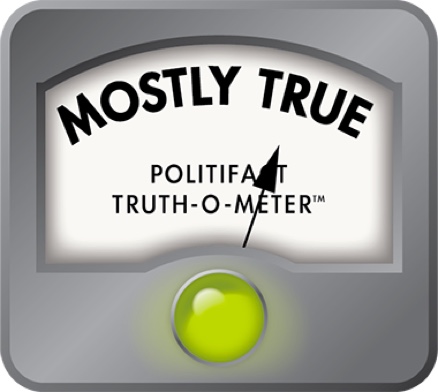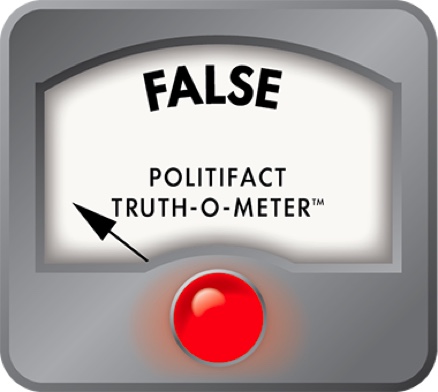Stand up for the facts!
Our only agenda is to publish the truth so you can be an informed participant in democracy.
We need your help.
I would like to contribute

A student works in the library at Virginia Commonwealth University in Richmond, Va., in 2019. (AP)
If Your Time is short
• Canceling student debt up to $50,000 has been a rallying cry for many younger Democrats, who see their ability to borrow for homes or cars negatively impacted by a heavy student debt load. Advocates say the law allows President Joe Biden to do this by signing an executive order.
• Biden has promised to consider waiving outstanding student debt, up to a limit and for individuals under an income limit. But the law may not allow him to accomplish this goal simply by signing an executive order, experts say.
Can President Joe Biden cancel student loan debt with an executive order? Senate Majority Leader Chuck Schumer, D-N.Y., has said in multiple press conferences that Biden can wipe away such debt with a "flick of a pen."
Canceling student debt up to $50,000 has been a rallying cry for many younger Democrats, who see their ability to borrow for homes or cars negatively impacted by a heavy student debt load. As of January 2021, student loan debt held by 44.7 million Americans totaled $1.73 trillion, according to Federal Reserve data.
As a presidential candidate in 2020, Biden promised to "forgive all undergraduate tuition-related federal student debt from two- and four-year public colleges and universities and private (historically Black colleges and universities) and (minority-serving institutions) for debt-holders earning up to $125,000."
Biden’s approach was not as aggressive as many activists and some Democratic officeholders had wanted, and Biden did not include funding for forgiving student loans when he released his fiscal year 2022 presidential budget proposal in May 2021.
Critics of student debt cancellation, especially the most aggressive moves, argue that it would unfairly treat Americans who scrimped to pay back their student loans.
The White House has indicated that Biden is continuing to study the issue. He has asked Education Secretary Miguel Cardona to prepare a memo about his legal authority to cancel student loan debt, and Biden has also said he’d like Congress to take action.
That said, Biden has set some limits. At a town hall in February, he said he’s "prepared to write off the $10,000 debt, but not ($50,000), because I don't think I have the authority to do it."
Senate Majority Leader Chuck Schumer, D-N.Y., talks with reporters on June 8, 2021. (AP)
Still, Schumer and his allies are keeping up the pressure.
On June 9, Schumer joined forces with Sen. Elizabeth Warren, D-Mass., actor and activist Alyssa Milano, and the NAACP in a #CancelStudentDebt Voices event hosted by the group Student Debt Crisis.
In a tweet he sent that day, Schumer reiterated his claim about how easily the debt relief could be accomplished. "President Biden can #CancelStudentDebt with the stroke of a pen," Schumer tweeted.
Is Schumer correct that Biden can cancel student loan debt? Because this is subject to legal debate and ultimately subject to judicial decisions, we won’t be rating it on our Truth-O-Meter. However, we found that the issue is not quite as clear as Schumer makes it sound.
The key provision that advocates of cancellation cite comes from the Higher Education Act, which was originally signed in 1965 and has been updated since.
Specifically, the law grants a presidential administration, via the Education Secretary, authority to "enforce, pay, compromise, waive, or release" government-held federal student loans. Indeed, the Higher Education Act provided the authority for President Donald Trump and Biden to pause student loan debt payments during the coronavirus pandemic.
However, experts disagree on whether the president can authorize widespread debt cancellation through an executive order. There’s enough of a legal question that any move by the president would likely prompt litigation, experts said.
"There are instances of presidents' executive orders being thrown out in the courts because they take actions that were not authorized by laws in the past," said Jason MacDonald, a political scientist at West Virginia University.
The Trump administration saw this kind of judicial pushback with its initial travel ban for people from Muslim-majority countries, MacDonald said.
While modest efforts to roll back student debt might not prompt legal obstacles, "the more ambitiously this authority is used, the greater the possibility of a legal challenge," said Judith Scott-Clayton, a professor of economics and education at Columbia University.
One of the contested issues could be Congress’ past changes to the Higher Education Act that cited narrow conditions under which student debt may be forgiven. Past federal legislation has addressed debt relief for teachers and workers in the public sector, cases in which schools close before a student earns a degree, and cases of a student’s death or disability. It’s not as clear whether blanket forgiveness would pass legal muster, experts said.
Similarly, the Higher Education Act’s authority to "compromise, waive, or release" has typically been used in the past for loans only in unusual circumstances, on a case-by-case basis, and for loans that are not expected to be repaid. Despite many recent graduates’ heavy debt loans, it’s not clear that all of their loans would be deemed unpayable.
"‘Compromise’ usually is used when someone cannot possibly pay a debt to the government, so the government cuts a deal," said Adam Looney, senior fellow at the Brookings Institution. "That’s very different from mass cancelation."
Meanwhile, a different law, the Federal Claims Collection Act, provides federal agencies with the authority to collect or compromise claims and suspend or terminate collection action.
However, this law "imposes a high standard for when the government can compromise a debt, to narrow circumstances like when the debtor is unable to pay and that inability is verified, or when the cost to collect the debt would be too high to justify the collection." Looney said.
Our Sources
Chuck Schumer, Tweet, June 9, 2021
Federal Reserve Bank of St. Louis, "Student Loans Owned and Securitized, Outstanding," accessed June 14, 2021
American Council on Education, "Higher Education Act and the Department of Education," accessed June 14, 2021
Student Debt Crisis, #CancelStudentDebt Voices Event, June 9, 2021
The Hill, tweet, May 16, 2021
CNBC, "Student loan forgiveness remains on the table, experts say," June 8, 2021
U.S. Department of Education Office of the General Counsel, "Memorandum to Betsy DeVos Secretary of Education," Jan. 18, 2021
Inside Higher ED, "Would Canceling Student Debt Promote Racial Equity?" June 11, 2021
Student Loan Hero, "A Look at the Shocking Student Loan Debt Statistics for 2021," June 11, 2021
Forbes, "6 New Developments Offer Clues On Student Loan Forgiveness," June 8, 2021
Forbes, "Could Trump’s Student Loan Executive Order Open The Door To Loan Forgiveness?" Aug. 8, 2020
Time magazine, "President Biden Just Suspended Federal Student Loan Payments. Here Are All His Plans for Student Debt Relief," April 15, 2021
NBC News, "'I will not make that happen': Biden declines Democrats' call to cancel $50K in student debt," Feb. 16, 2021
NBC News, "Biden to review executive authority to cancel student debt," April 1, 2021
PolitiFact, "Student debt forgiveness is not in Biden’s 2022 budget, but it’s still in play," May 28, 2021
Email interview with Judith Scott-Clayton, a professor of economics and education at Columbia University, May 24, 2021
Email interview with Adam Looney, senior fellow at the Brookings Institute, May 23, 2021
Phone interview with Sandy Baum, Urban Institute, May 29, 2021
Email interview with Jason MacDonald, political scientist at West Virginia University, June 7, 2021

























